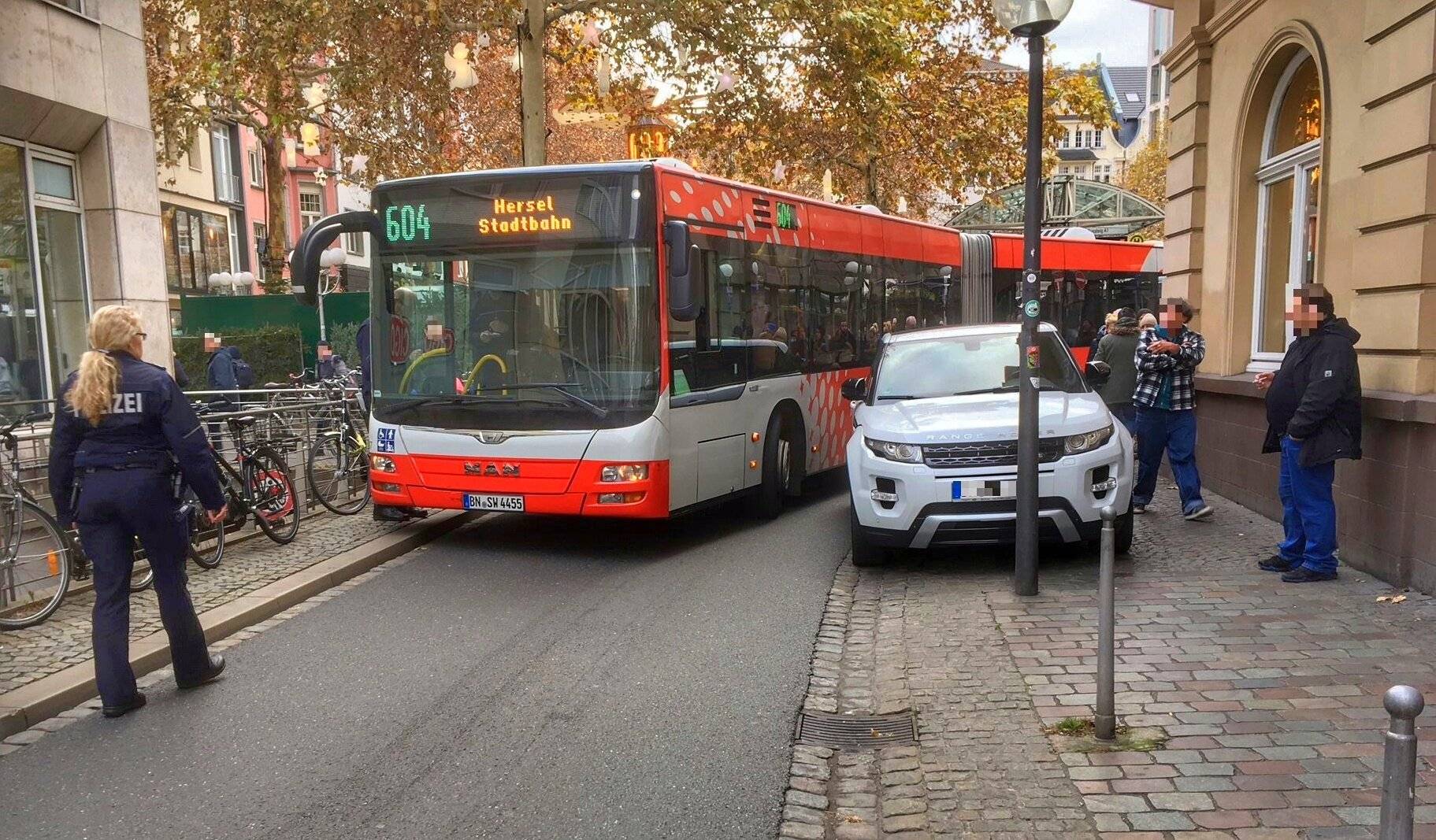More severe fines for parking violations The city of Bonn is having more and more cars towed away
Bonn · The city of Bonn now has almost three times as many cars towed away as it did just a few years ago. The number of parking offenders is particularly high in some parts of the city.
The City of Bonn is having illegally parked cars towed away more and more frequently. Between 2016 and 2019 the numbers almost tripled. This fact together with the Coronavirus pandemic means that offenders are having to wait a long time for their parking tickets. Most recently, a Bonn resident was only informed of the fine after two and a half years. The city reacts particularly strictly in some situations, often having vehicles towed off.
One Bonn resident who contacted the GA editorial office had stopped waiting for the letter. His car had been towed away on 11 November 2019. "My fault," he says today. He went to the car pound the same evening and paid the release fee. Almost two years later, on 14 October 2021, he received the official notification from the municipal fine office, giving him the possibly to object, which he did not do. Four months later, he received the fine for 75 euros.
The city can’t keep up
"We are way behind on following up on towing in the fines office," explains Andrea Schulte from the city press office. One reason is that administrative offence procedures in connection with Coronavirus violations currently have priority. Another is that more vehicles are now being towed away than in the past. But the delay is within the legal framework. In North Rhine-Westphalia, the time limit for issuing fines is four years, and it begins with the end of the calendar year in which the offence happened. In the case of the Bonn resident, the city would have had until the end of 2023 to serve the parking ticket.
The sharp rise in towing figures is because of a sharp rise in parking violations. According to Schulte, these have increased in recent years. "At the same time, there is more public interest in keeping particularly vulnerable areas such as pedestrian zones, footpaths and cycle paths as well as parking spaces for e-vehicles or disabled parking spaces free." Accordingly, the city is deploying more wardens to monitor stationary traffic. And they are stricter. A few years ago they might have turned a blind eye, but not anymore. In 2012, 867 vehicles were towed away, but between 2013 and 2016 the figure was around 1200 a year. In 2019, it was already 3420, a peak figure. In the two pandemic years, it was much quieter, with 2044 and 2560 cars respectively.
This is not noticeable in the collected administrative fees, which flow directly into the municipal budget, partly because fines have increased. In 2019 fees amounted to some 50,800 euros, in 2021 about 83,200 euros. The city cannot quantify the number of fines and warnings imposed. Towing costs are 75 euros during the week from Monday to Friday between 8 am and 8 pm, and 150 euros plus VAT at other times. In addition to these towing costs, illegal parkers are also charged administrative fees, which usually amount to 75 euros.
Towing is particularly frequent here
Despite stricter interpretation, there is room for manoeuvre for the inspectors. "The more serious the offence, i.e. the greater the danger posed by parking offenders, the more likely it is that they will be towed away," explains Schulte. This is especially the case at intersections, but also when other road users are obstructed, for example when parking on the pavement. Anyone parking illegally in a disabled parking space will also be towed away. In recent years, parking spaces for e-vehicles have also been added. There is no mercy and there’s no waiting time for someone to get back to their vehicle when emergency routes or buses and trains are blocked by illegally parked vehicles.
"The most common traffic violations that lead to towing measures are the illegal parking of vehicles in temporary no-stopping zones, which have been set up for construction work, filming, moving house or special events," says Schulte. The city tows most frequently in the Südstadt and in the city centre. Also during large events, towing from temporary no-stopping zones is more frequent, especially during carnival parades, Pützchens Markt or events in the Rheinaue such as the monthly flea markets. This also explains why the numbers were comparatively low during the pandemic: Many major events were cancelled.
Original article: Nicolas Ottersbach
Translation: Jean Lennox




